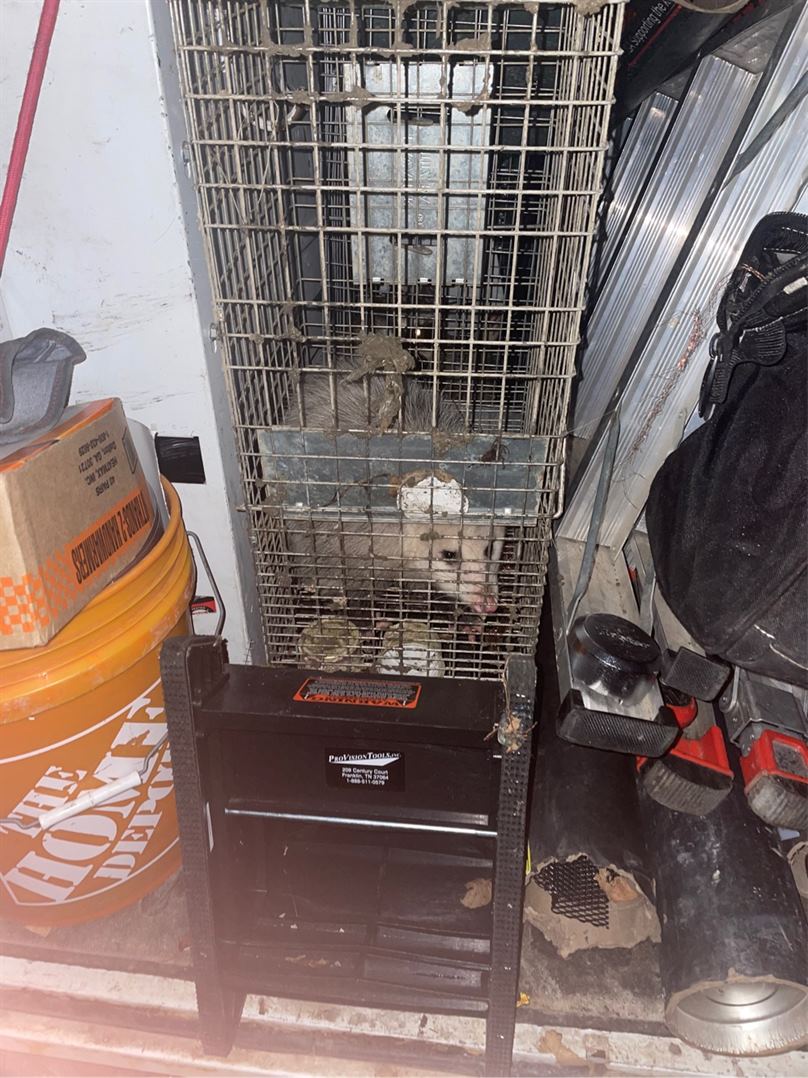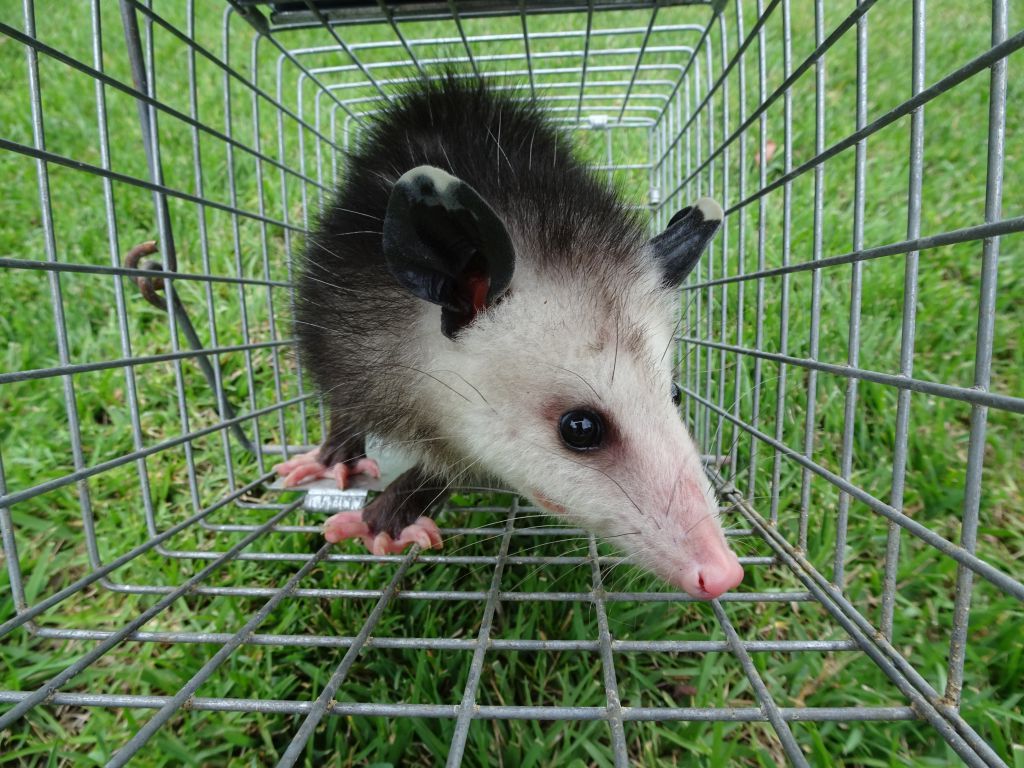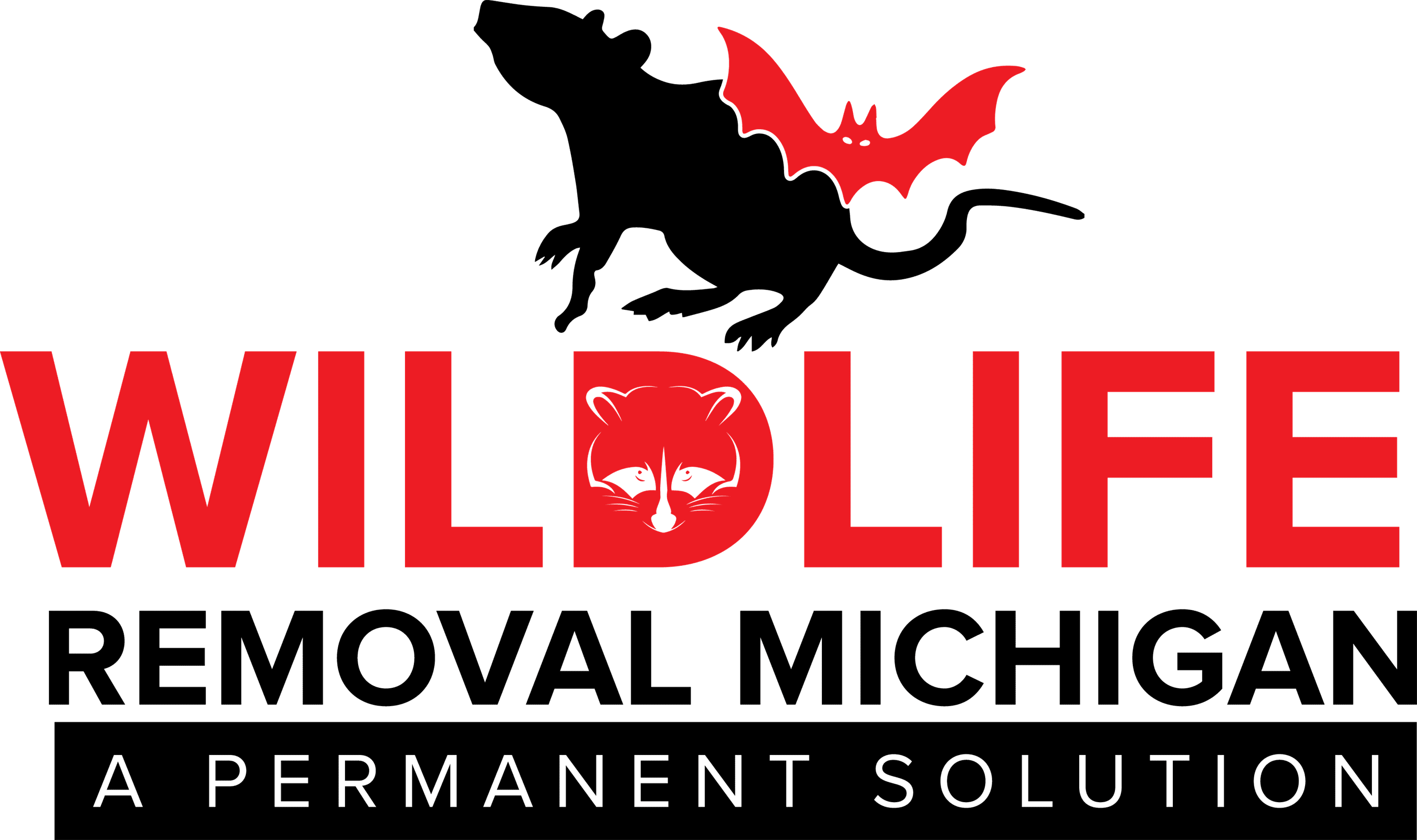Opossum Removal
Opossums are interesting creatures, as they are famous for playing dead and being scavengers. It comes as no surprise to most that opossums have tons of diseases they can give to humans and that most homeowners want them removed. Continue reading to find out more about opossums and how you can get rid of them.
What damage do opossums cause?
While opossums generally do not attack humans or pets, if they are provoked they may become highly aggressive. These critters carry all kinds of nasty diseases that can be potentially fatal to humans, including leptospirosis and tuberculosis. In addition, opossums are known for carrying rabies. They spread these diseases through the feces they leave everywhere, any saliva or urine they leave anywhere, and potentially through bites and direct contact with humans and pets. It is important to understand that these creatures are very dangerous to keep around, as small children and smaller pets may end up seriously harmed by the opossum. You want to get these critters removed as quickly as you can.
How do I prevent opossums?
Keeping opossums off of your property is pretty well impossible unless you have a fence up with no holes or gaps. However, there is one way in which you can reduce the attractiveness of your yard to this critter. Keep any trash and pet food locked uptight and be sure to pick up any fallen fruit from trees, as getting rid of easy food sources will give the opossum no incentive to come to your yard.

How can I trap opossums?
The cage trap is hands-down the most commonly used method of capturing and removing opossums from attics and properties. Simply bait the trap with peanut butter or dog food, and you will likely catch your opossum. While this is simple, it is generally recommended to hire a professional wildlife control company, as complications may arise in removing opossums. Oftentimes, if an opossum was in your attic, it is likely it had younglings that need to be taken care of as well, creating a difficult situation for most homeowners.
How to Get Rid of Opossums in Your Attic
Like rats, opossums are notorious for finding their way into homes. Attics are one of the prime locations for an infestation. Inside an attic, opossums find continual warmth – even through winter -, an easily accessible supply of food, and safety and security from predators. Upon finding such a location, the normally nomadic opossum bunkers down. Little wonder opossums in attics are so common.
However, unlike rats, because of opossums’ size, the waste left behind is often sizable. That includes waste piles, urine puddles, and significant damage to insulation and the building’s structure.
Therefore, upon discovering opossums, you want to take immediate action. For homeowners, this can be a daunting prospect. But it’s not one you need to tackle alone. Please contact Wildlife Removal Michigan for a professional and experienced opossum removal service. We’ll even advise you on how to prevent future infestations. Still, check out the advice below before getting in touch.

How to remove an opossum
First, you’ll want to inspect the attic. Signs of an opossum may include strange animal noises, scratching or scurrying sounds, the presence of feces, or more. You’ll want to inspect the feces or tracks to discern the exact species you’re dealing with, as attics are common homes for rats, bats, and raccoons. Even better is if you can spot the opossum themselves. Don’t approach, however. Opossums, like all wild animals, are carriers of disease. If you get too close or at worst touch the animal, then you can become infected.
Next, examine the exterior of your home. The opossum was able to enter your attic through an entry point. Before removing the opossum, it is vital to locate these entryways. Otherwise, future infestations aren’t merely a possibility; they’re only a matter of time.
It’s then time to remove the opossum. Here there are two possibilities:
- Poison
- Traps
Poisoning the opossum may feel like the easiest and quickest option. But consider, poisons do not work quickly. They can take hours to kill an animal in the most agonizing way possible. Firstly, that’s inhumane, and secondly, vulnerable animals often seek shelter in places of safety. That means the opossum is likely to venture even deeper into the attic or, worse, fall into a wall space. Now you’ve got a dead carcass to locate and remove.
It is better to trap the opossum, thereby keeping it in one location and making the removal significantly easier. Large cage traps (12 x 12 x 30) are the traditional removal method. They include bait which lures the opossum into the trap. Then, the mechanism is triggered, and the cage locks shut. Alternatively, professionals may even remove opossums by hand – if you’re not a professional, DO NOT ATTEMPT this.
Finally, after the opossum – and any live young – have been removed, clean up the attic. For this, you may want to hire a wildlife sanitation service. Then, seal the entryways. By doing so, you prevent any future infestations and can rest easy, knowing your attic is secure.
If you’ve caught an opossum, you’re now faced with the challenge of release. Choosing a suitable location to let an opossum go can be tricky. You’re also forced to transport the animal in your car. It is far safer to trust a professional for this. Therefore, contact us here at Wildlife Removal Michigan for a safe, reliable, and efficient opossum removal service. We’ll even be able to advise you on any potential repairs. We know how stressful infestations can be. So, we’re always ready and happy to help.
Why hire Wildlife Removal Michigan?
Wildlife Removal Michigan prides itself on years of opossum removal experience, servicing the state of Michigan to get rid of these unwanted critters. Our experts know exactly how to remove the opossums, both adults, and younglings, and will make sure to do the job right the first time. In addition to removing the animals, Wildlife Removal Michigan also offers repairs to the damage done by the animal, home sanitization, and attic insulation clean-up and installation.

